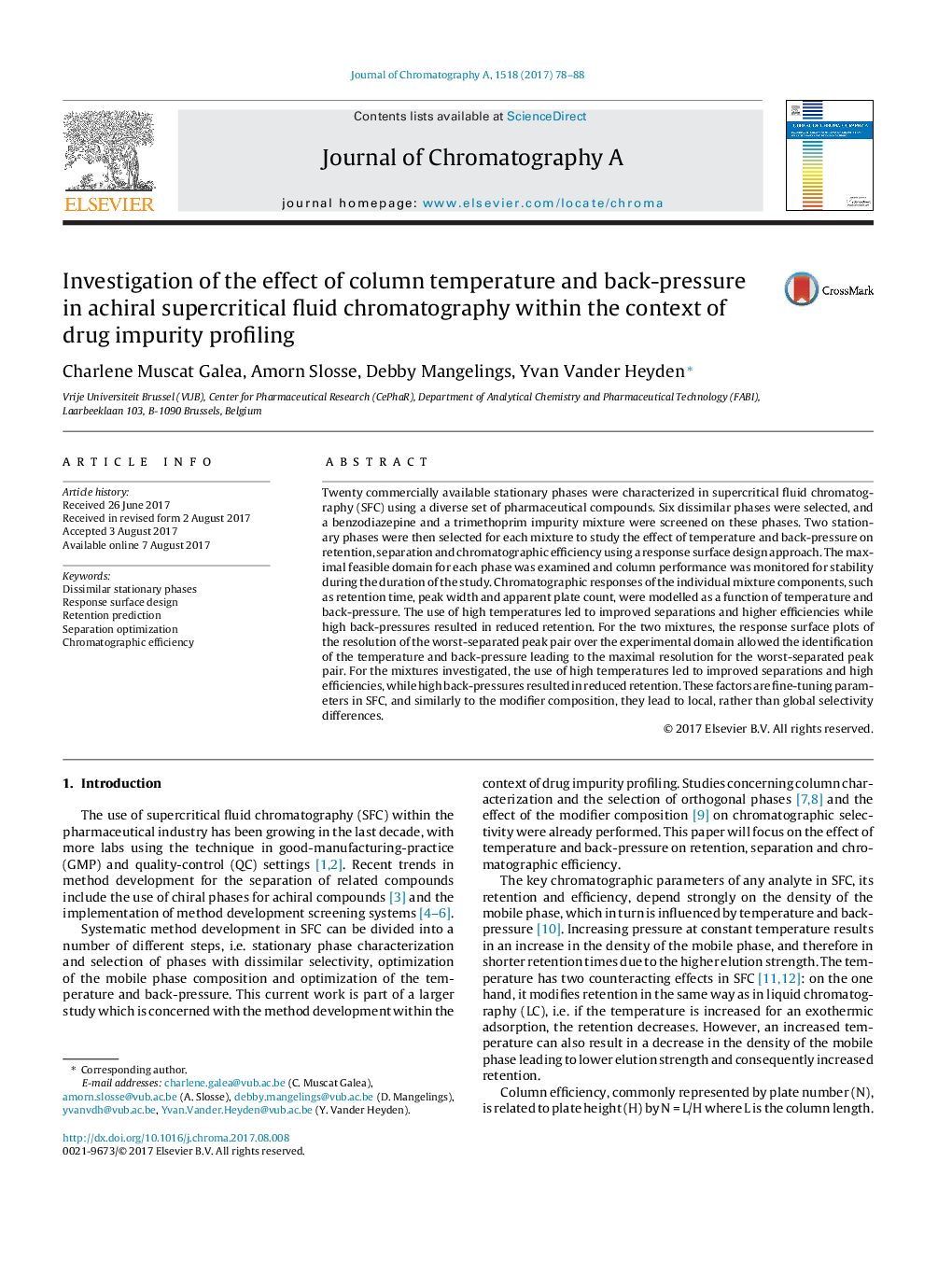| Article ID | Journal | Published Year | Pages | File Type |
|---|---|---|---|---|
| 5135005 | Journal of Chromatography A | 2017 | 11 Pages |
â¢Characterization of a set of polar and aromatic stationary phases.â¢Optimization of temperature and back-pressure with a response surface design approach.â¢Modelling chromatographic responses as a function of temperature and back-pressure.â¢Effect of temperature and back-pressure on retention, separation and chromatographic efficiency.
Twenty commercially available stationary phases were characterized in supercritical fluid chromatography (SFC) using a diverse set of pharmaceutical compounds. Six dissimilar phases were selected, and a benzodiazepine and a trimethoprim impurity mixture were screened on these phases. Two stationary phases were then selected for each mixture to study the effect of temperature and back-pressure on retention, separation and chromatographic efficiency using a response surface design approach. The maximal feasible domain for each phase was examined and column performance was monitored for stability during the duration of the study. Chromatographic responses of the individual mixture components, such as retention time, peak width and apparent plate count, were modelled as a function of temperature and back-pressure. The use of high temperatures led to improved separations and higher efficiencies while high back-pressures resulted in reduced retention. For the two mixtures, the response surface plots of the resolution of the worst-separated peak pair over the experimental domain allowed the identification of the temperature and back-pressure leading to the maximal resolution for the worst-separated peak pair. For the mixtures investigated, the use of high temperatures led to improved separations and high efficiencies, while high back-pressures resulted in reduced retention. These factors are fine-tuning parameters in SFC, and similarly to the modifier composition, they lead to local, rather than global selectivity differences.
